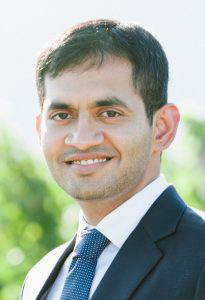Date/Time
Date(s) - 10/11/2022
9:15 am - 10:15 am
Location
New Engineering Building - Room 100
Categories
Purushottam Dixit, Ph.D.
Assistant Professor
Department of Physics
University of Florida
Title: Thermodynamics as a dimensionality reduction technique
Abstract: Advances in omics technologies have allowed a high dimensional characterization of biological systems. However, due to complexity of interactions, bottom-up mechanistic models are not feasible. We need a top-down methods to integrate available data and mechanistic information. The maximum entropy (Max Ent) principle has proved to be a promising framework for such integration. However, there are several limitations to Max Ent. The most important being that the modeler is required to a priori identify appropriate constraints. Max Ent models are notoriously difficult to learn, prohibiting their applications to problems with large data dimensions. To address these issues, we propose a novel dimensionality reduction method called Thermodynamic Manifold Inference (TMI). First, in TMI, the modeler only specifies the total number of constraints. The constraints are optimally learned from the data and a Max Ent model is fit to those constraints. Second, because of this optimal choice, TMI inference is significantly faster than typical Max Ent, allowing us to analyze very high dimensional data that remain well out of the reach of current Max Ent methods. Third, TMI is a non-linear latent-space based dimensionality reduction method. We will develop TMI and discuss in detail two specific applications (1) predictive models of host-microbiome interactions and (2) models of protein sequence variation.
Bio: Purushottam Dixit finished his undergraduate work in chemical engineering at the Indian Institute of Technology Bombay in 2006. Next, he moved to the Johns Hopkins University for a doctoral degree in chemical engineering. After a postdoctoral stint at the Brookhaven National Laboratory and Columbia University, he joined the Physics department at the University of Florida in January of 2020. His research group works on building computational models that integrate biophysical mechanistic constraints and high dimensional data. His lab maintains an active interest in signaling, metabolism, and host microbiome interactions.

